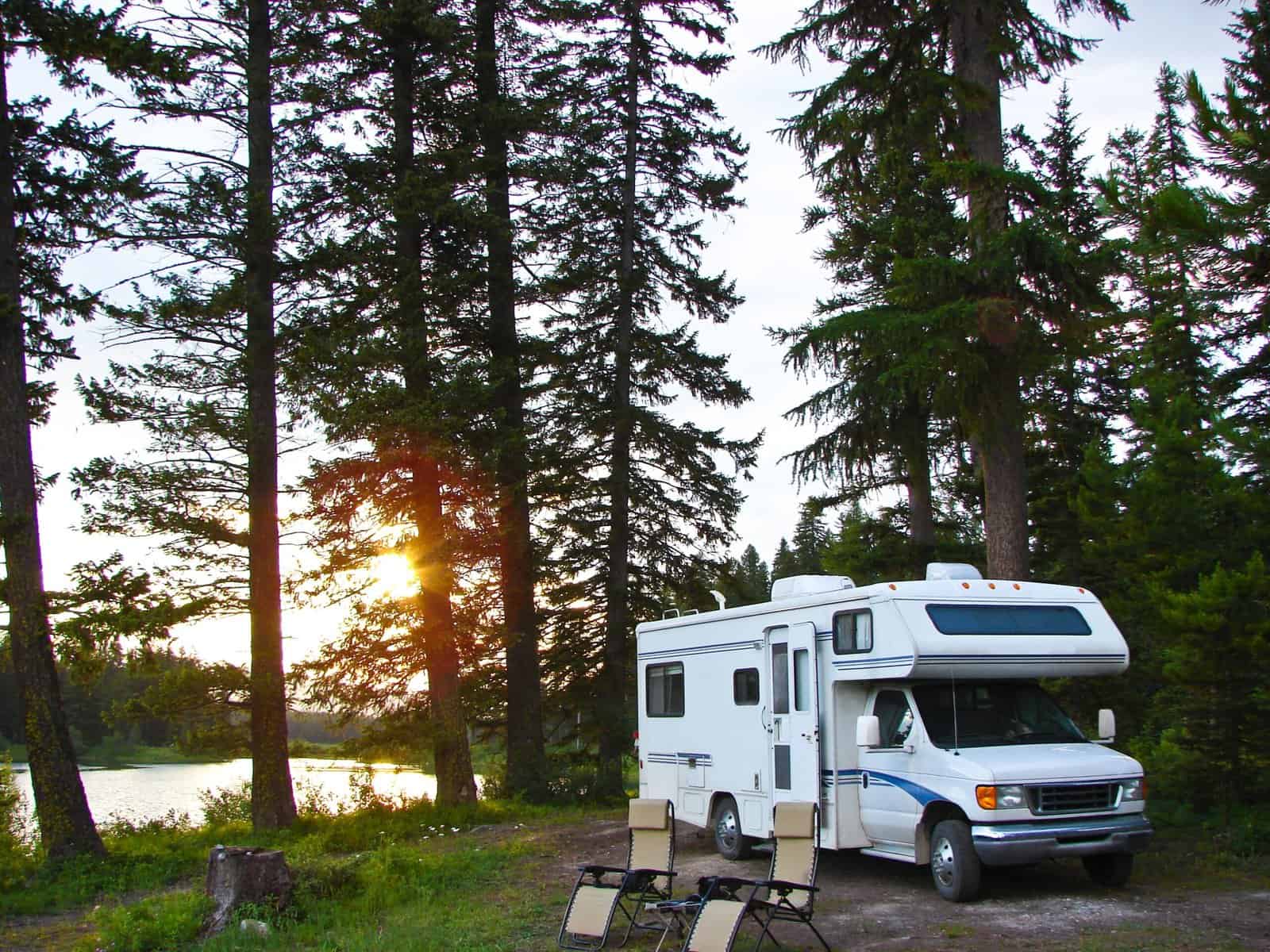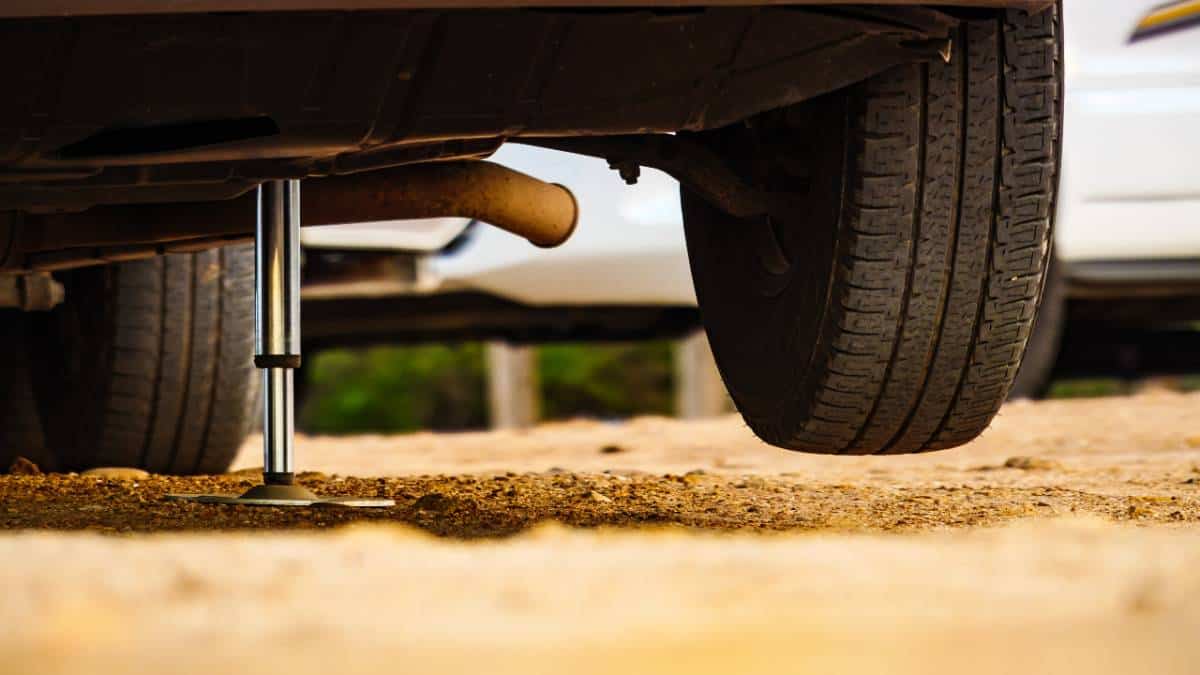What You Need To Know About RV Searches and Your Legal Rights
Your RV isn’t just a vehicle; it’s a full-on home on wheels. However, this dual nature raises some unique legal questions, and one of the biggest is related to police searches. Do the police treat your RV as a car, a house, or something different entirely?
The legal landscape of RVs can be a complex one. In this article, we’ll help you understand the law to answer the question: Can police search your RV?
Please note that while we strive for accuracy, it’s essential to consult legal professionals to ensure the information in the article is current and accurate. Laws and interpretations can vary by state and may have changed since this article was published.
Understanding the Fourth Amendment

If you forgot 8th-grade history class, the Fourth Amendment states:
“The right of the people to be secure in their persons, houses, papers, and effects, against unreasonable searches and seizures, shall not be violated, and no Warrants shall issue, but upon probable cause, supported by Oath or affirmation, and particularly describing the place to be searched, and the persons or things to be seized.”
In other words, the police can not search you without your consent unless they have reasonable cause for suspicion. In most cases, they’ll also need a judge-issued search warrant in hand. However, there are exceptions to this.
For example, cops can search your home if evidence of a crime is in plain view. Or they can search your person if they observe unusual conduct that may indicate criminal activity.
One of the biggest exceptions, though, is the so-called “vehicle exception.” Per the Supreme Court in the case of Pennsylvania v. Labron, “if a car is readily mobile and probable cause exists to believe it contains contraband, the Fourth Amendment permits the police to search the vehicle.” Due to this, the police do not usually need a warrant to search your vehicle.
RVs: Vehicles or Homes?

RVs present a unique challenge in the police search conversation due to their dual nature as both vehicles and homes. RVs are used for transportation (just like a car) but they also serve as living space (just like a house). So how exactly does the Fourth Amendment apply to your home on wheels?
A number of court cases have taken on just this question, with the most notable being California v Carney. In this case, the court upheld the notion that RVs are subject to the automobile exception, just like any other vehicle. This is because, although RVs are homes, they are also mobile.
A notable exception comes from the case of Arizona v Gant. In this case, the Supreme Court ruled 5-4 that an RV parked at your home is also not subject to the automobile exception. In such a case, police will need a warrant, consent from you, or an applicable exception (such as plainly visible evidence of a crime) to perform a search.
When Can Police Search Your RV?

So then, in exactly what situations can the police search your RV?
In most cases, police will not need a warrant in order to search your RV. Some of the situations in which police can legally search your RV include:
- If there is probable cause to believe that your RV contains some evidence of criminal activity
- If there is reasonable suspicion that a traffic violation has occurred or criminal activity is afoot
- “Special law enforcement concerns” such as the occurrence of a crime on a highway. This can justify traffic stops even without any suspicion of individual wrongdoing
- Officers can pat down you and your passengers without needing to prove reasonable suspicion of a crime. The same goes for having a drug-sniffing dog check the exterior of your vehicle, without needing to prove reasonable suspicion of a crime.
So, let’s take a closer look at the terms “probable cause” and “reasonable suspicion.”
What Is Reasonable Suspicion?
Reasonable suspicion means a police officer suspects a crime is being committed based on the facts and circumstances of the situation. No hard evidence of a crime is required, and what qualifies as reasonable suspicion is largely up to the officer in question. However, an officer cannot make an arrest based on reasonable suspicion alone.
What is Probable Cause?
This brings us to probable cause. This is a higher standard than reasonable suspicion. Probable cause requires the officer to have a reasonable belief, based on the facts and circumstances present, that a crime is being or has been committed.
For example, imagine you are pulled over for erratic driving and have visible open alcohol containers in your RV. This will establish probable cause for a search and possible arrest.
In addition to all this, police can search your RV if you consent to said search. This is known as a “consent search.”
Of course, it’s important to remember that every state also has its own laws and regulations. So be sure to do your due diligence and research the laws in your area.
Protecting Your Rights
So, as we’ve seen, a police search of your RV is possible, and in most cases, the Fourth Amendment won’t protect you. However, there are a couple of things you can take to protect yourself.
The first and most important step is to understand your rights, and what the laws are in your particular jurisdiction. Do your own research so that you’re prepared with the knowledge to handle such situations.
Also, know that, no matter how insistent they are, you have the right to decline a search you do not consent to. Do not fall prey to tactics like promising to go easy on you, or implying only a guilty person would deny a search. If a police officer tries to use such tactics on you, firmly state that you do not consent to any search.
This won’t automatically protect you from a police search if the officer can still establish reasonable suspicion or probable cause. But it does make it more difficult for the officer to search your vehicle. Remain calm, and never be afraid to exercise your rights.
It’s Important To Know Your Rights When it Comes to Police Searches and RVs
Police searches and RVs are a complex topic, and it’s important to know your rights in order to be properly prepared.
Unlike a traditional home, the police do not need a warrant in order to search your RV. Because of this, it’s important to be cautious and responsible when driving your RV. If the police do stop you, you’ll be prepared with full knowledge of your rights and what you can do in such a situation.





You have discussed, RV’s, what about travel trailers and 5th wheels? They are towed and not self propelled.
What about a travel trailer?
It has no engine..
The police can do whatever they want with impunity. They practically have to be video taped beating you to death to get even the slightest reprimand. Take the Rodney King incident. The cops got off Scott free even with being taped. No, I’m not a person of color, but what those cops did was VERY EXCESSIVE and WRONG.
You know it is illegal to have an open container of booze in your vehicle right? Well, now we’re talking about an RV. This is my home. Is it also illegal to have an open container of booze in my home…on wheels? Just wondered, while we’re on the subject of rules, what the rules for that might be.
I’m sure if the open container was on the seat beside me the cops would object. If it is back in a storage compartment in the RV (that they may be searching) is that also a problem? Since you are the RV search legal eagle I thought maybe this would be a good topic for an article.
While an officer may be able to enter a motorized RV after a traffic stop with probable cause, he/she just can’t enter to see what they can find. The officer must be able to articulate exactly what he/she is looking for. Anything in plain sight is fair game, but I don’t believe they can open drawers and cabinets and they certainly can’t force open any locked rooms, cabinets or drawers. The officer can impound the vehicle with probable cause, have it towed to a secure location and get a search warrant to open any locked areas. And once set up at a campsite or other approved area the RV becomes a home and is no longer considered a motor vehicle.